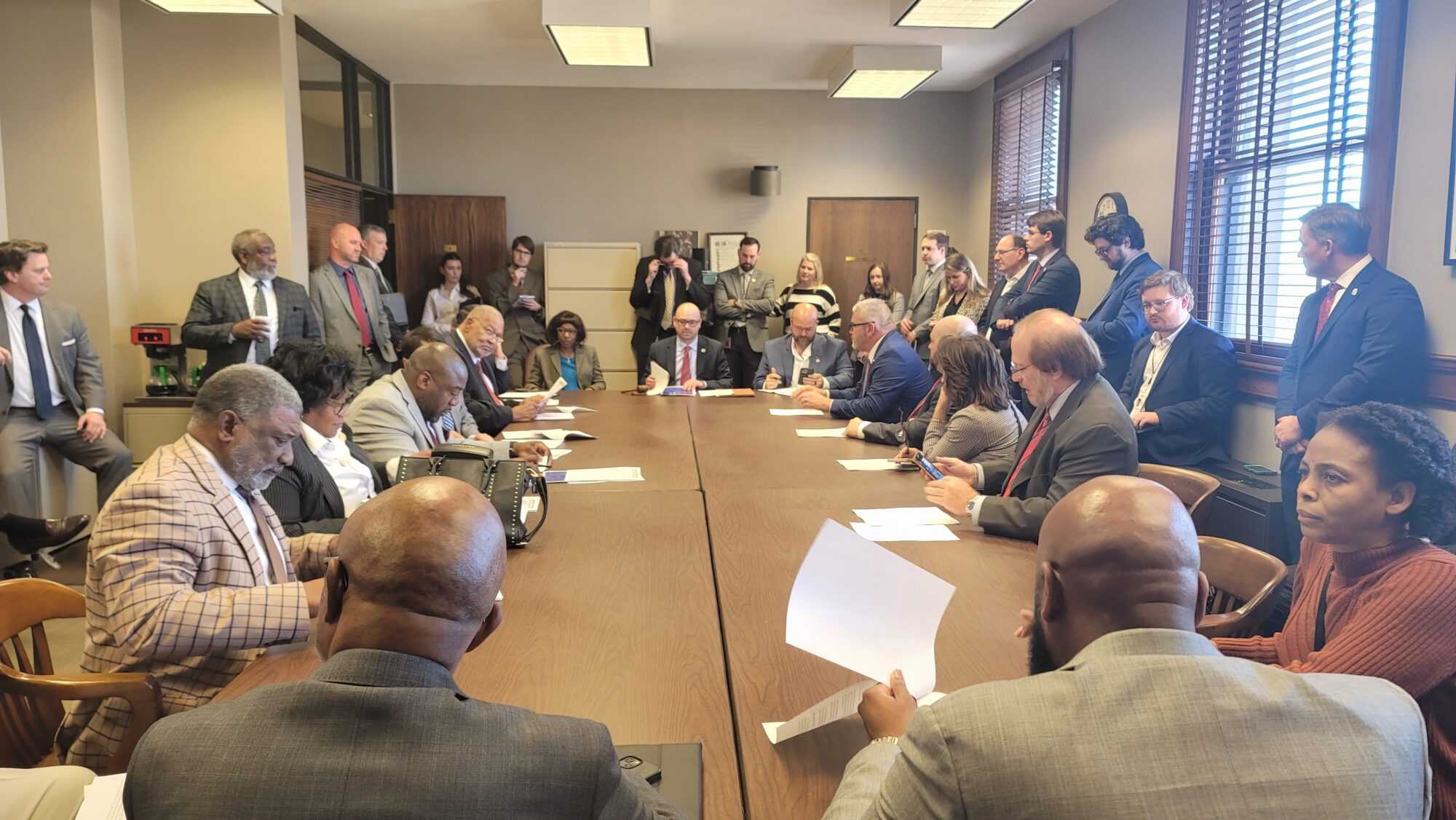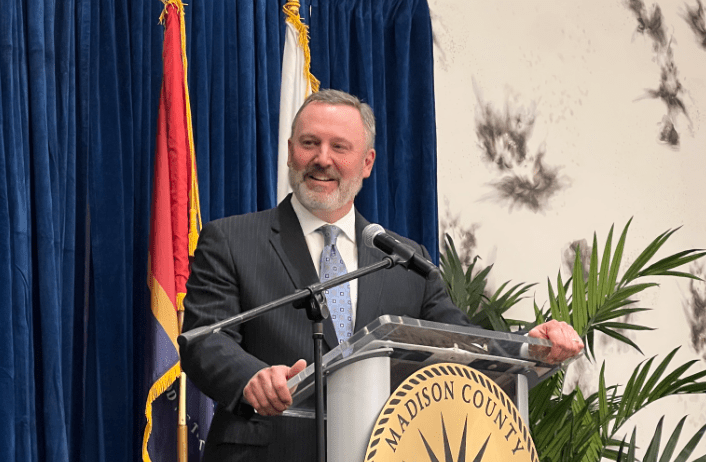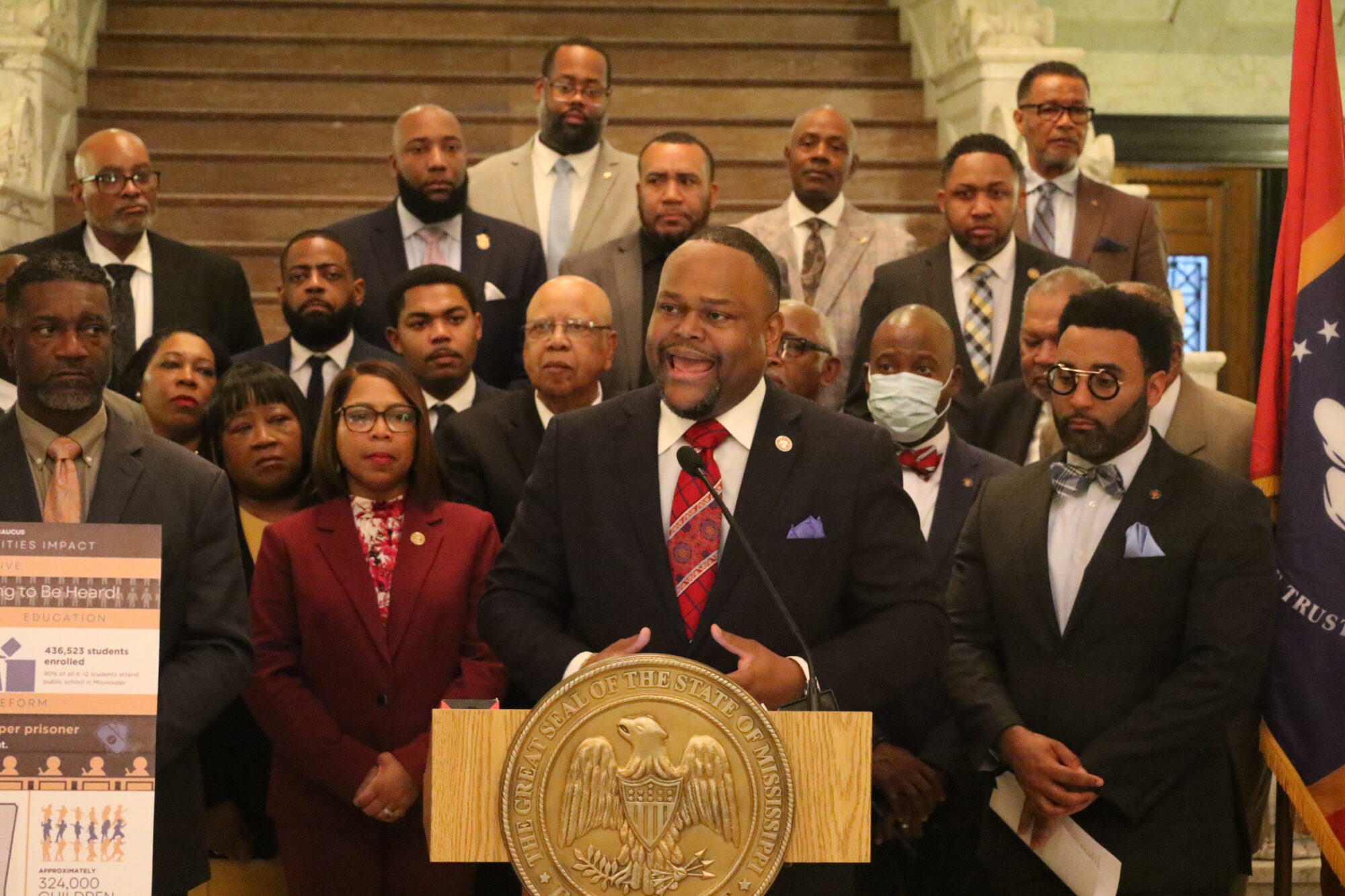
The Gaming Committee of the Mississippi House of Representatives held a hearing to consider House Bill 774, which will make online mobile sports betting legal outside the walls of casinos in the state if it's signed by the governor. Photo by Jeremy Pittari | Magnolia Tribune
House Gaming Chairman Rep. Eure says the proposed legislation ensures the brick and mortar casinos as well as state and local governments are considered as the mobile betting market develops.
Online sports betting may be legal outside the walls of a Mississippi casino if House Bill 774 gains traction in the Legislature.
On Tuesday, the House Gaming Committee took up the bill in a hearing that saw it move to the next step.
Currently, betting on an athletic event or online sports pool through a mobile platform while not standing in a casino is considered illegal. HB 774 aims to do is bring those illegal bets under the umbrella of existing casinos.
If the bill becomes law, local governments will collect an additional 4 percent tax on winnings, while the state will collect 8 percent. Those figures are over and above existing gambling tax structures, said Gaming Committee Chair State Rep. Casey Eure (R).
Each casino can only partner with one platform but are free to chose the platform. Eure said the casino also has the option to develop their own platform if they wish.
The aim of the bill is to protect the brick and motor casinos in the state, Eure stated.
Eure said this bill has been in the works for four years. The push to pass it started because Mississippi ranks first in illegal online betting in the United States.
In terms of revenue, Tennessee brings in $83.6 million in mobile sports betting tax revenue, while neighboring Louisiana brought in $40.4 million.
If this bill makes it to the Governor’s desk and is signed, Rep. Eure estimates an additional $25-$35 million will be collected in gambling taxes. That estimate could a bit conservative, the Coastal Mississippi Representative said, adding that he would not be surprised to see as much as $50 million.
The top six cities in Mississippi with instances of illegal mobile sports betting are Columbus, Greenwood, Meridian, Hattiesburg, Biloxi and Jackson. By legalizing the option, Eure said those figures will decrease. States that have legalized mobile sports betting have less instances of people going to an illegal betting site.
“If you go to a state that has legal mobile sports betting, it reverses,” Eure said. “So as you can see once you legalize mobile sports betting you do a way with a lot of the illegal market.”
Geospatial checks over a year that recorded visits to illegal gaming sites by users within Mississippi reported 9.3 million checks, a large number when compared to the state of Texas, which had 5 million checks.
“So as you can see, a lot of Mississippians are wanting to place mobile sports wagers,” Eure added.
By tying all online sports bets to an approved platform, underage betting will not be a factor, since, as Rep. Eure noted, there are several checks and balances in place.
Geofencing will be required as part of the bill to ensure any bets placed by people in the state are actually within its boundaries. If a Mississippian wants to bet while in another state that has legal online sports betting, they will pay that state’s taxes on any winnings. People who live in other states that are visiting Mississippi can place online sports bets so long as they are in the Magnolia State’s lines. Once they leave the state, they will no longer be able to place an online bet through a Mississippi platform.
A committee passed the bill out to the floor and could be considered as early as Wednesday by the full House.









